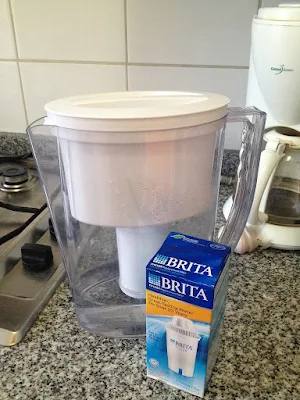Sometimes, Brita water filters may experience clogging where water does not flow properly or gets trapped without passing through the filter.
If the filtration speed slows down or water completely stops flowing, is the filter broken?
In this article, we will explain common Brita filter issues and their solutions in an easy-to-understand manner.
Removing Air Bubbles Causing Clogging
The main reason for Brita filter clogging is often air bubbles trapped inside the filter.
When air gets inside, it obstructs water flow, causing slow filtration or a complete stoppage.
Here’s how to resolve this issue:
- Gently tap the filter a few times to release trapped air.
- Remove the filter and submerge it in water, then shake it to remove air bubbles.
- Tap the Brita pitcher lightly on a surface to help release any trapped air.
Checking Filter Installation
If the filter is not properly installed, water may not flow correctly.
When reinstalling the filter, check the following:
- Ensure the filter is securely locked in place.
- Avoid applying excessive force while inserting the filter.
- Remove and reinsert the filter to confirm proper water flow.
When to Replace the Filter
Over time, Brita filters lose effectiveness, causing slow filtration and clogging.
It is recommended to replace the filter every 2 to 4 months.
Consider replacing the filter in the following cases:
- If the filter has been used for over two months, consider replacing it.
- If black particles continue to appear in the filtered water, install a new filter.
- Since different Brita models have varying filter lifespans, check the user manual for guidance.
- Here's Link for discounted filters for Brita : (CLICK HERE to Amazon link)
Dealing with Black Particles in Filtered Water
Sometimes, newly installed Brita filters may release black particles into the water.
These particles are leftover activated carbon and can be resolved using the following methods:
- Remove the filter and submerge it in water, shaking it to remove excess particles.
- Avoid turning on the faucet too strongly when pouring water over the filter, as high water pressure can dislodge carbon particles.
- Before first use, rinse the filter under running water for 1-2 minutes to reduce residue.
Conclusion
Common causes of Brita filter clogging include trapped air bubbles, incorrect installation, or an expired filter.
Additionally, if black particles appear in filtered water, submerging the filter in water and shaking it can help, as well as avoiding strong faucet pressure while filling the pitcher.
Check your Brita water filter now and apply these solutions to resolve the issue!
If the problem persists, consider reaching out to Brita customer support for further assistance.

